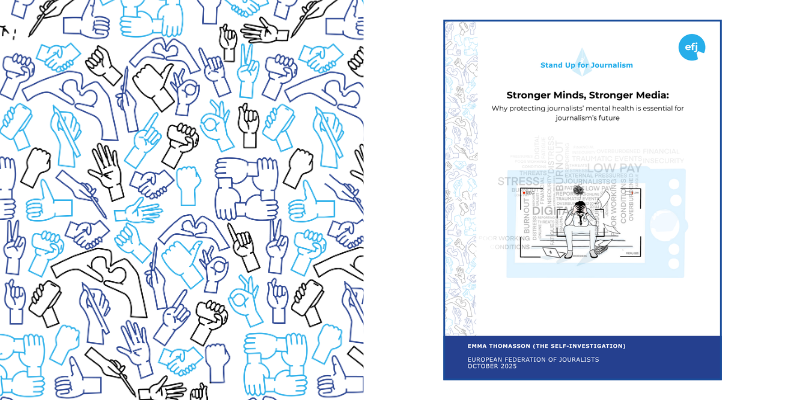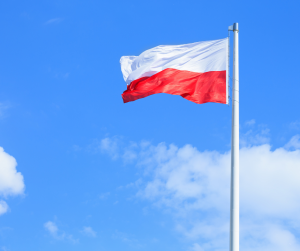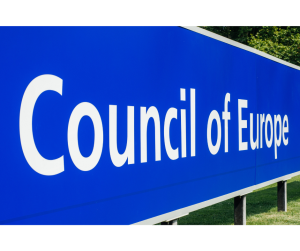Today the European Federation of Journalists (EFJ) and The Self-Investigation release a new report entitled “Stronger Minds, Stronger Media: Why protecting journalists’ mental health is essential for journalism’s future”. This research collects good practice examples, provides recommendations to journalists’ representatives, media organisations and helpful resources.
The issue of mental health has largely been ignored until recent years in the journalism sector, but more and more studies and evidence show that stress related to a highly competitive work environment, with 24h-news cycle, as well as low pay and job insecurity contribute to mental health problems. It leads to burnout, some leaving the profession and, in the worst cases, results in journalists taking their own lives.
“Journalists are workers who are highly exposed to stress, burnout, online harassment, digital overload and long working hours. Work-life imbalance has a direct impact on the health of journalists.” Ricardo Gutierrez, EFJ General Secretary.
Authored by Emma Thomasson, a mental health coach and former journalist for Reuters, this report synthesised existing research, offers essential insights into the factors contributing to mental health problems and provides an overview of good practice examples in mental health support, as well as recommendations.
It is based on both quantitative and qualitative research carried out mostly in the first half of 2025. The EFJ conducted an online survey of its members in 17 countries to evaluate specific mental health needs. It was complemented by a focus group held during an EFJ workshop in June 2025.
The research highlights that many journalists already provide informal support to each other on a regular basis. But this kind of informal support relies on individual initiatives and is provided disproportionately by women. The report also emphasises the importance of engaging men, especially those in senior positions, in discussing the issue and taking action.
“As a patriarchal and highly traditional country, where emotions are best kept hidden, breaking the stigma surrounding mental health—especially among men in the media sector—is challenging,” said Drazen Djuraskovic, Project Manager from the Trade Union of Media of Montenegro.
In countries such as Germany, Romania, Montenegro and Portugal, journalist unions and informal groups hold regular meet-ups and workshops. While not always focused on mental health, they provide a safe space for colleagues to share challenges and solutions together. The report advocates for a multi-stakeholder approach, involving media management, to develop proper frameworks for this work.
Unions and media organisations are expected to play a more active role in supporting such networks by helping to find funds, partners, speakers and infrastructure, or facilitating training for peer support. Most of the unions surveyed by the EFJ see the need for more research into this topic.
Overall the report calls for a shift in workplace culture so that mental health is addressed as a priority and in a systematic manner.
“Protecting journalists’ mental health is not optional — it’s a duty of care media organisations must uphold, especially as threats to reporters intensify around the world, including in Europe. That’s why every editor and senior manager needs proper training on this issue,” said Mar Cabra, Co-Founder of The Self-Investigation.
Stand Up for Journalism is a 18-month project led by the EFJ and implemented with its partners: Independent Journalists’ Association – NUNS (Serbia), Trade Union of Media of Montenegro – TUMM (Montenegro), Danish Journalists’ Union – DJ (Denmark), Turkish Journalists’ Union – TGS (Turkey), Syndicat National des Journalistes – SNJ-CGT (France) and Association des Journalistes Professionnels – AJP (Belgium)
T![]() his project is co-funded by the European Union. Views and opinions expressed are however those of the author(s) only and do not necessarily reflect those of the European Union. Neither the European Union nor the granting authority can be held responsible for them.
his project is co-funded by the European Union. Views and opinions expressed are however those of the author(s) only and do not necessarily reflect those of the European Union. Neither the European Union nor the granting authority can be held responsible for them.
Source: EFJ




